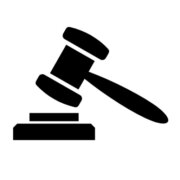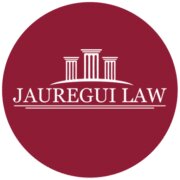Best Child Abuse Lawyers in United States
Share your needs with us, get contacted by law firms.
Free. Takes 2 min.
Free Guide to Hiring a Family Lawyer
Or refine your search by selecting a city:
List of the best lawyers in United States
About Child Abuse Law in United States
Child abuse in the United States is a serious issue that encompasses physical, emotional, and sexual abuse, as well as neglect of a minor. Child abuse laws are designed to protect minors from harm and provide mechanisms for intervention when abuse is suspected or verified. Each state has its own set of laws and definitions concerning child abuse, though all emphasize the protection of children and the prosecution of offenders. Federal laws also play a role in setting standards and providing grants to support state-level prevention and intervention efforts.
Why You May Need a Lawyer
If you or someone you know is involved in a child abuse case, it’s crucial to seek legal assistance. Common situations where legal help may be required include:
- Being the accused in a child abuse case.
- Seeking custody or guardianship of a child who may be abused.
- Reporting suspected abuse and needing guidance on legal obligations and procedures.
- Navigating the child welfare system as a parent or guardian who has lost or is at risk of losing custody of a child.
- Being a mandated reporter (e.g., teacher, healthcare professional) and needing advice on reporting procedures.
Local Laws Overview
Each state and territory within the U.S. has its own specific laws concerning child abuse. However, the following aspects are commonly covered across jurisdictions:
- Mandated Reporting: Most states require certain professionals to report any suspected cases of child abuse.
- Definitions: States define what constitutes abuse and neglect, typically including physical, emotional, sexual abuse, and failure to provide adequate care.
- Penalties: Legal consequences for abuse can include fines, imprisonment, and loss of custody or parental rights.
- Child Protection Services (CPS): State agencies are empowered to investigate allegations and take emergency protective measures.
Frequently Asked Questions
What constitutes child abuse?
Child abuse includes acts or failures by a parent or caretaker resulting in harm to a child. This includes physical, emotional, or sexual harm, as well as neglect.
Who are mandated reporters?
Mandated reporters are individuals required by law to report any suspected child abuse. This typically includes teachers, healthcare workers, and law enforcement personnel.
How do I report child abuse?
Child abuse can be reported to local or state child protection services or law enforcement agencies. Many states have hotlines dedicated to such reports.
What happens after abuse is reported?
When abuse is reported, child protection services generally evaluate the information and may initiate an investigation or protective actions if deemed necessary.
Can a child testify in abuse cases?
Yes, children can testify in abuse cases, but courts often ensure a process respectful of the child's age and psychological welfare.
What legal protections exist for abused children?
Children are protected through the state child welfare systems which may include shelters, foster care, and adoption services, as well as legal protections protecting their rights in court.
Can a parent lose custody due to abuse allegations?
Yes, parents or guardians can lose custody rights if allegations of abuse are substantiated by the child protection services or through court proceedings.
Which agency is responsible for child protective actions?
Child Protection Services (CPS) or the equivalent state agency handles protective actions regarding child abuse and neglect cases. They operate under state government oversight.
Are there any federal laws addressing child abuse?
Yes, federal laws like the Child Abuse Prevention and Treatment Act (CAPTA) set standards and provide funding to help states improve child protective services.
Can abuse cases be sealed or expunged from records?
This depends on state laws and the circumstances of the case, particularly in juvenile matters. An attorney can provide specific guidance.
Additional Resources
For those seeking further information or assistance regarding child abuse, consider reaching out to these organizations:
- Child Welfare Information Gateway: Provides a range of resources on child welfare, protection, and adoption.
- National Child Abuse Hotline: Offers 24/7 support and guidance for those needing assistance with child abuse concerns.
- Local Child Protective Services (CPS): Each state has its local CPS office where you can report suspicions of abuse.
- American Bar Association - Children's Rights: Offers information and resources on legal rights and protections for children.
Next Steps
If you believe you need legal assistance in a child abuse case, consider the following steps:
- Consult with an Attorney: Reach out to a lawyer specializing in family law or child welfare for legal advice tailored to your situation.
- Document Everything: Keep detailed records of any incidents, interactions, or communications related to the abuse allegations.
- Cooperate with Authorities: If involved in a case, provide full cooperation with Child Protective Services and law enforcement.
- Seek Support: Engage with support groups or counseling services for emotional support and guidance through the process.
- Understand Your Rights: Educate yourself on the legal rights and protections available to you and any minors involved.
Lawzana helps you find the best lawyers and law firms in United States through a curated and pre-screened list of qualified legal professionals. Our platform offers rankings and detailed profiles of attorneys and law firms, allowing you to compare based on practice areas, including Child Abuse, experience, and client feedback.
Each profile includes a description of the firm's areas of practice, client reviews, team members and partners, year of establishment, spoken languages, office locations, contact information, social media presence, and any published articles or resources. Most firms on our platform speak English and are experienced in both local and international legal matters.
Get a quote from top-rated law firms in United States — quickly, securely, and without unnecessary hassle.
Disclaimer:
The information provided on this page is for general informational purposes only and does not constitute legal advice. While we strive to ensure the accuracy and relevance of the content, legal information may change over time, and interpretations of the law can vary. You should always consult with a qualified legal professional for advice specific to your situation.
We disclaim all liability for actions taken or not taken based on the content of this page. If you believe any information is incorrect or outdated, please contact us, and we will review and update it where appropriate.
Browse child abuse law firms by state in United States
Refine your search by selecting a state.














